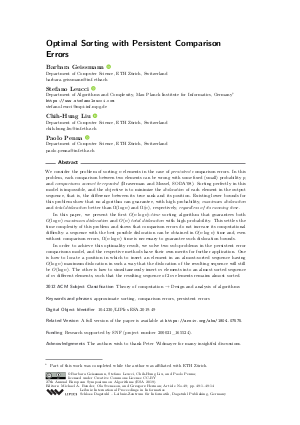LIPIcs.ESA.2019.49.pdf
- Filesize: 0.66 MB
- 14 pages

 Creative Commons Attribution 3.0 Unported license
Creative Commons Attribution 3.0 Unported license











Feedback for Dagstuhl Publishing